Hello there! Welcome back to Kelly’s Kitchen; I am happy you’re here today. I have another summertime recipe for you this week: cold soba with miso eggplant. At this point in the summer, cool and refreshing meals are just the thing to beat the heat. I remember summer’s past, when I would visit friends in Los Angeles, we would always go to Little Tokyo to get cold soba. I remember the first time I had cold soba, I didn’t know you dipped the noodles into sauce, rather than pour it all over the noodles. And before my friend could stop me, I had poured my dipping sauce over my noodles. Such a faux pas!
I have always loved Japanese noodles, but what a revelation that first plate of cold soba was! I hadn’t had cold soba in a long time when Alex asked me to make some, so I thought it might be a good recipe to share with all of you! We had some Japanese eggplant in our CSA box, so I have a miso roasted eggplant to go along with the soba.
Let’s start with the miso eggplant.
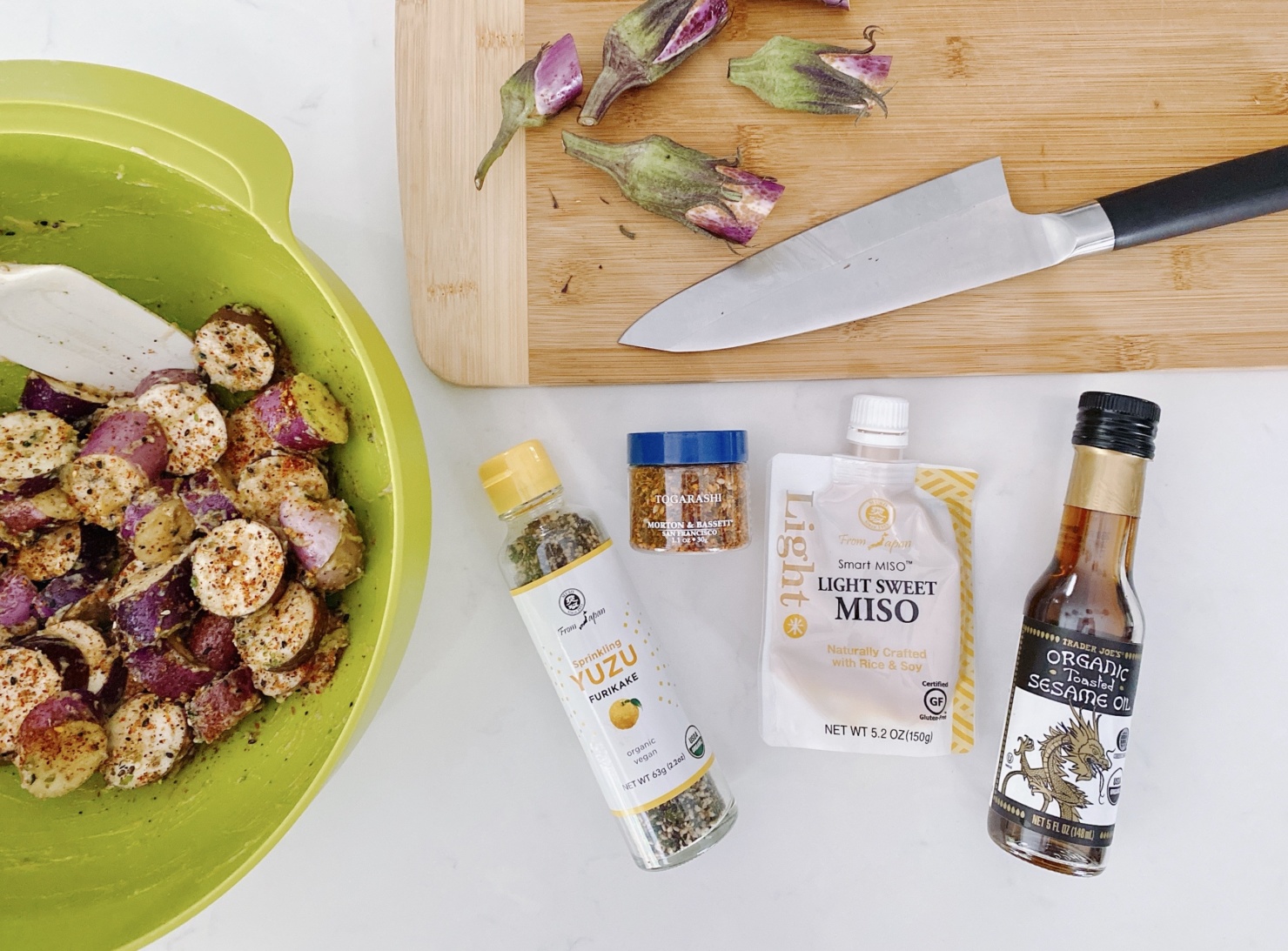
Japanese eggplant is the long skinny cousin of the Italian eggplant; it has slightly sweeter flesh and softer skin. I had five of them, and I just sliced them into half inch thick slices. Drizzle about a teaspoon of sesame oil and add two teaspoons of light miso. Then add a generous sprinkling of togarashi and furikake. Gently stir to coat the eggplant with the miso and oil. Spread the slices out on a rimmed baking sheet.
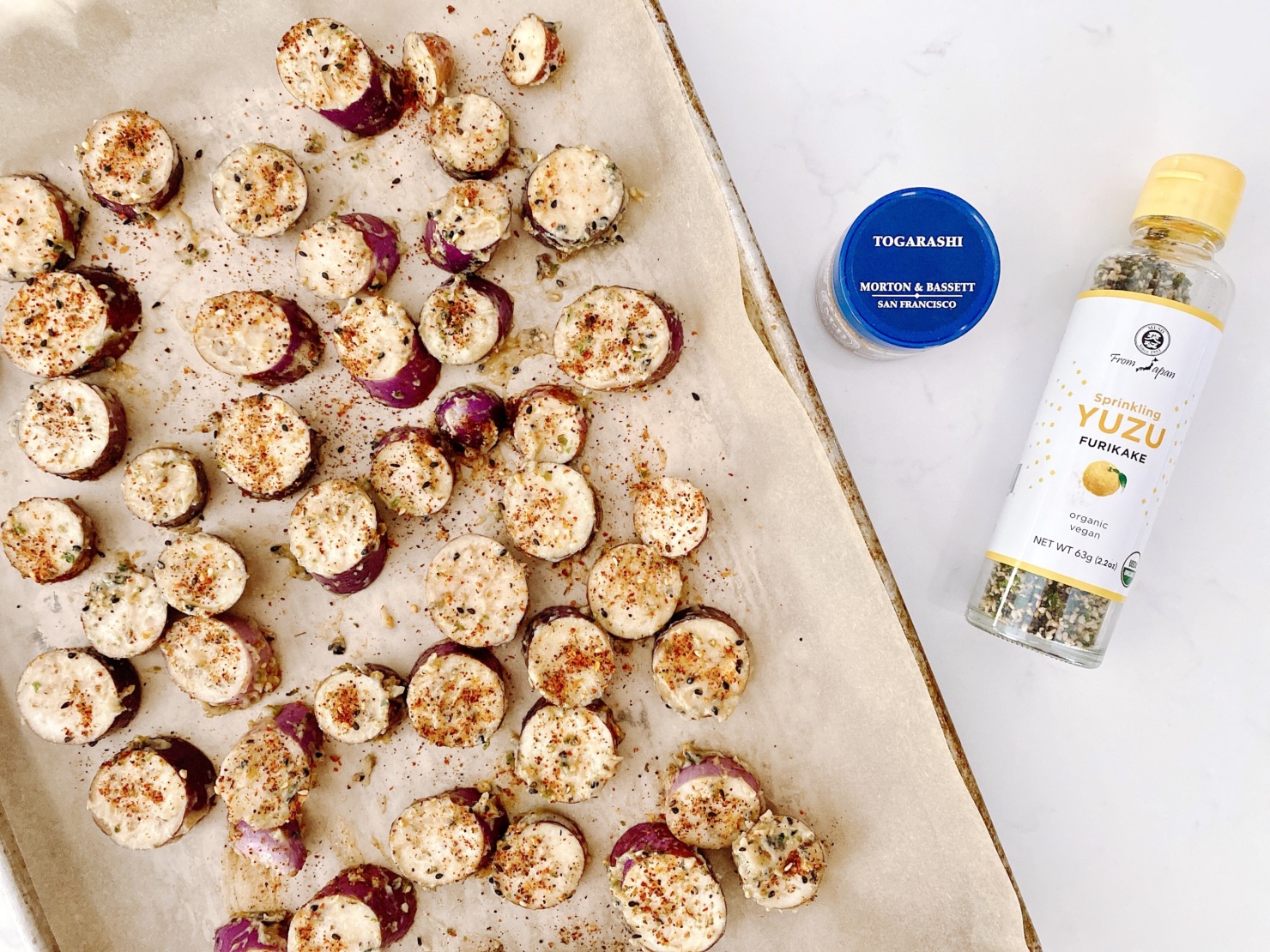
Togarashi is a Japanese 7 spice blend. It’s a little spicy and usually has a combination of chiles, orange peel, sesame, and nori. It’s a great condiment for anything really, but you’ll often see it with noodle soups.
Furikake is another great Japanese condiment, mostly used to flavor a bowl of rice or onigiri (Japanese rice ball), but I like it on soups and noodles too. There are tons of varieties out there, but usually it consists of dried fish, seaweed, salt and sesame seeds. Mine happens to be a yuzu variety.
I roasted these guys at 325 degrees for about 15 minutes or so. Keep an eye on them and pull them out when they’re tender and golden.

Dipping Sauce
The soba dipping sauce is easy to make. I had some leftover dashi (dashi is a typical Japanese stock made from kombu, dried bonito flakes and water) so I started with that. But you can use chicken stock, if you like.

Condiments
In addition to the dipping sauce, I have my eggplant and my other condiments are pickled ginger, wasabi and finely sliced scallions.
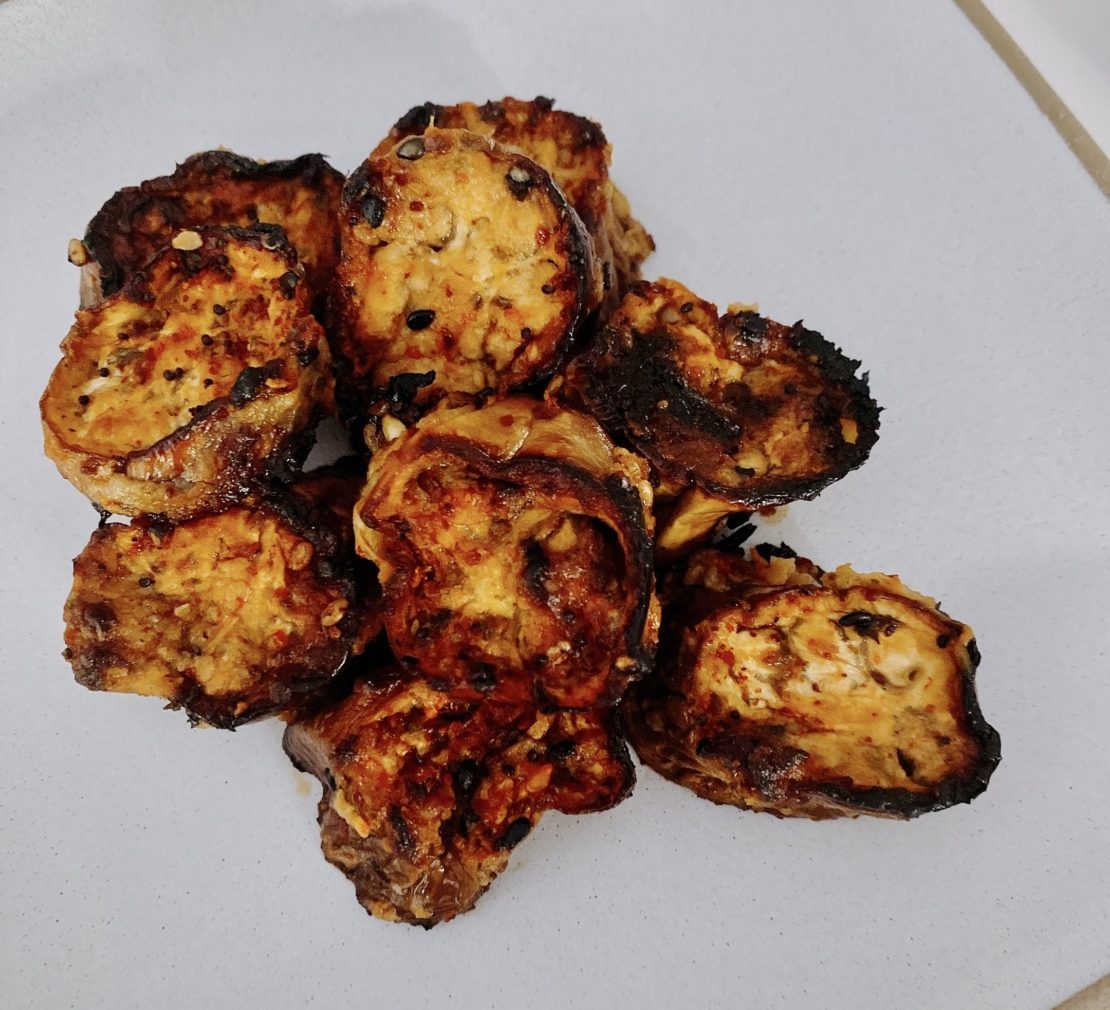
Green Tea Soba
For a fun alternative, the noodles I have are green tea soba noodles. Cook the noodles in boiling water according to the package directions, strain and quickly plunge noodles in an ice bath and stir with your hand to circulate the ice water until they are completely cool.
The plating of cold soba makes this dish special, it’s so simple. I have a rectangular plate which is perfect for serving the noodles and the dipping sauce on one dish. You will want to have the sauce on the same plate as the noodles because, as you can imagine, the dipping sauce will drip.
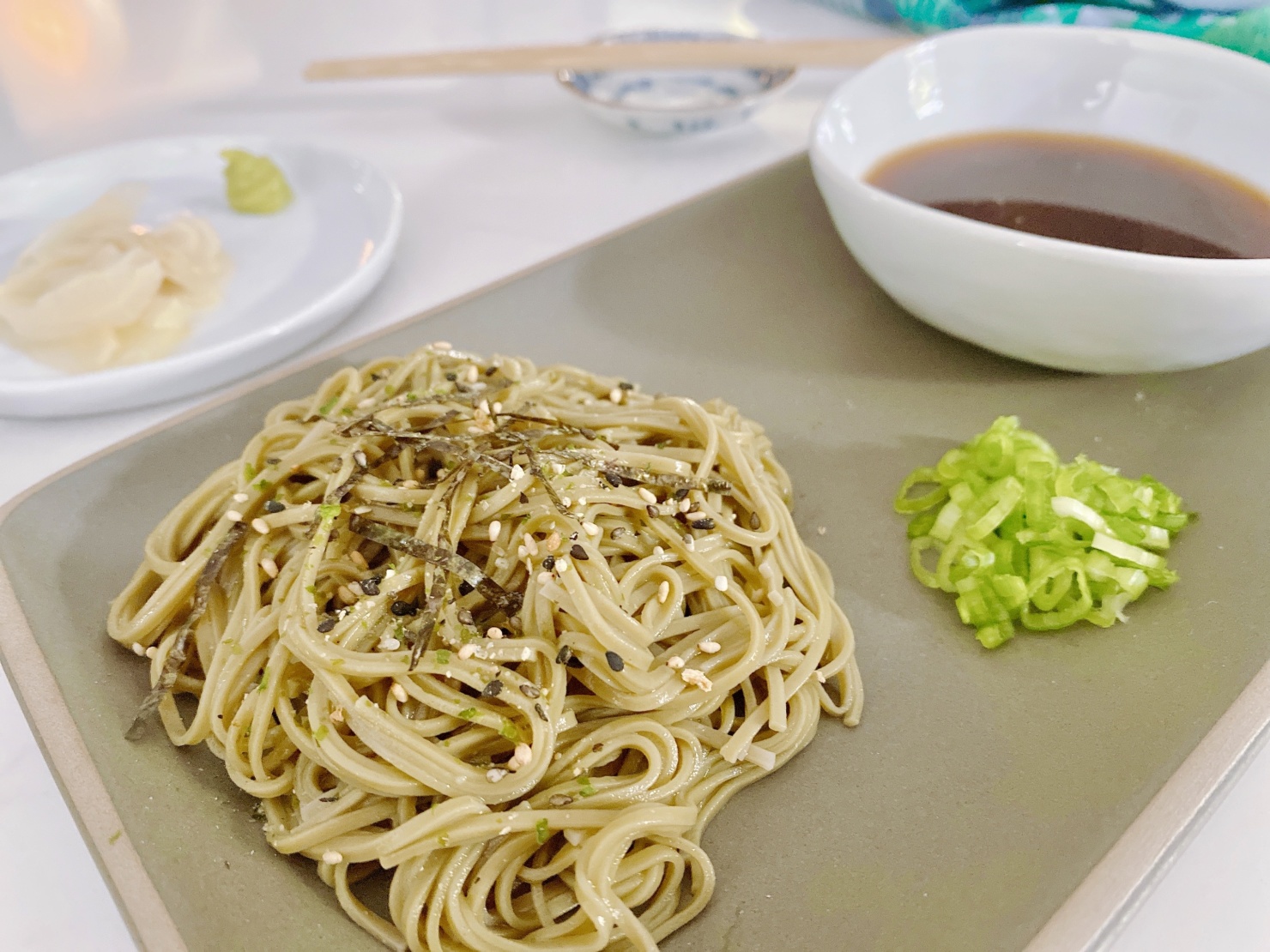
I sprinkled some furikake on the finished noodles. and added my scallions to the side
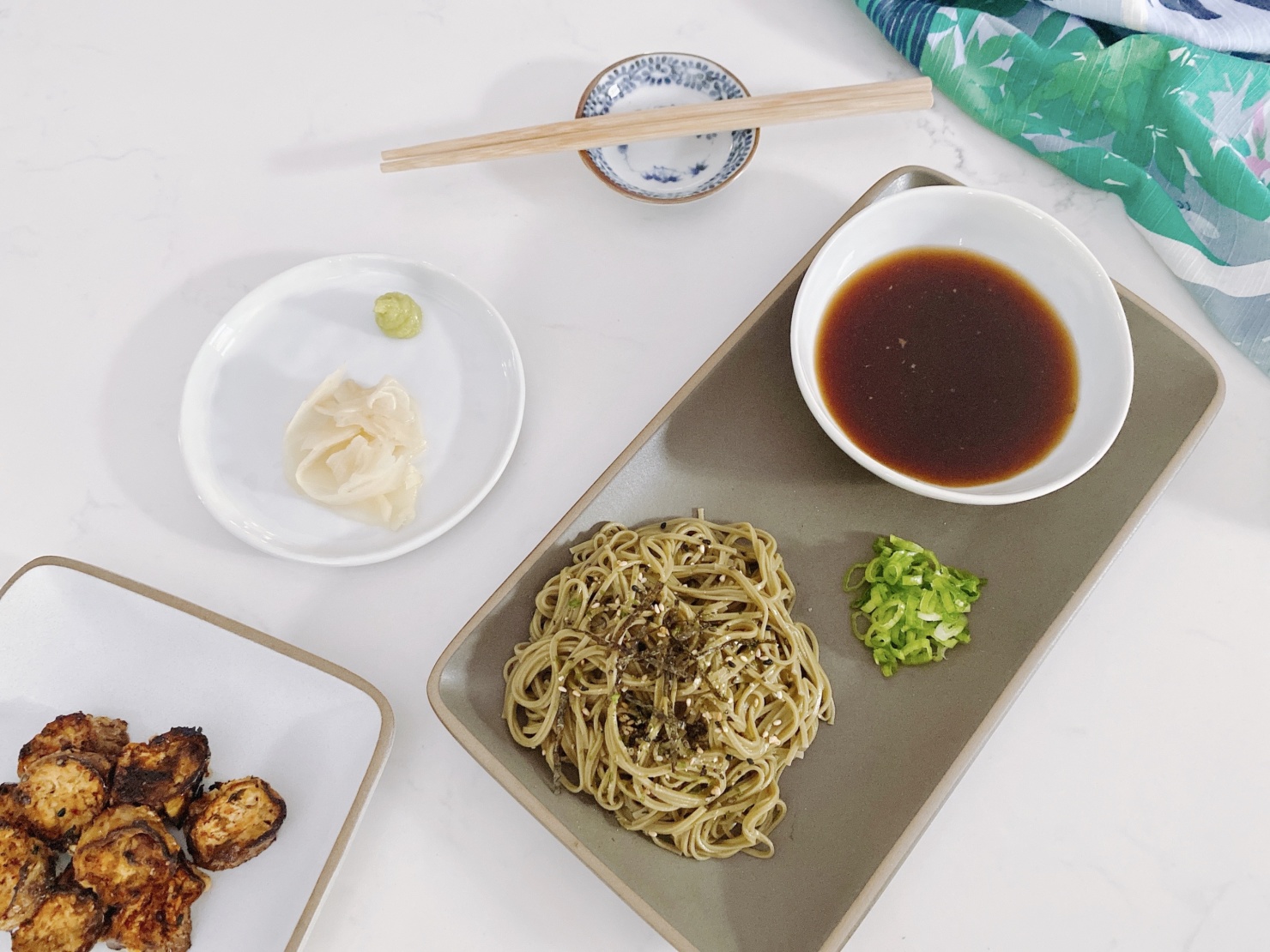
Savory, umami-rich flavors of Japan in the simplest of summer dishes. Definitely try cold soba with miso eggplant; it’s so refreshing and satisfying. If you’re in the mood for something else simple, refreshing and cool, try my ceviche recipe.
Thanks everyone for joining me today! Don’t forget you can find me on Instagram and Facebook too! Also, let me know if there is anything in particular you’d like to explore in this weekly column. Take care, be well, xo Kelly
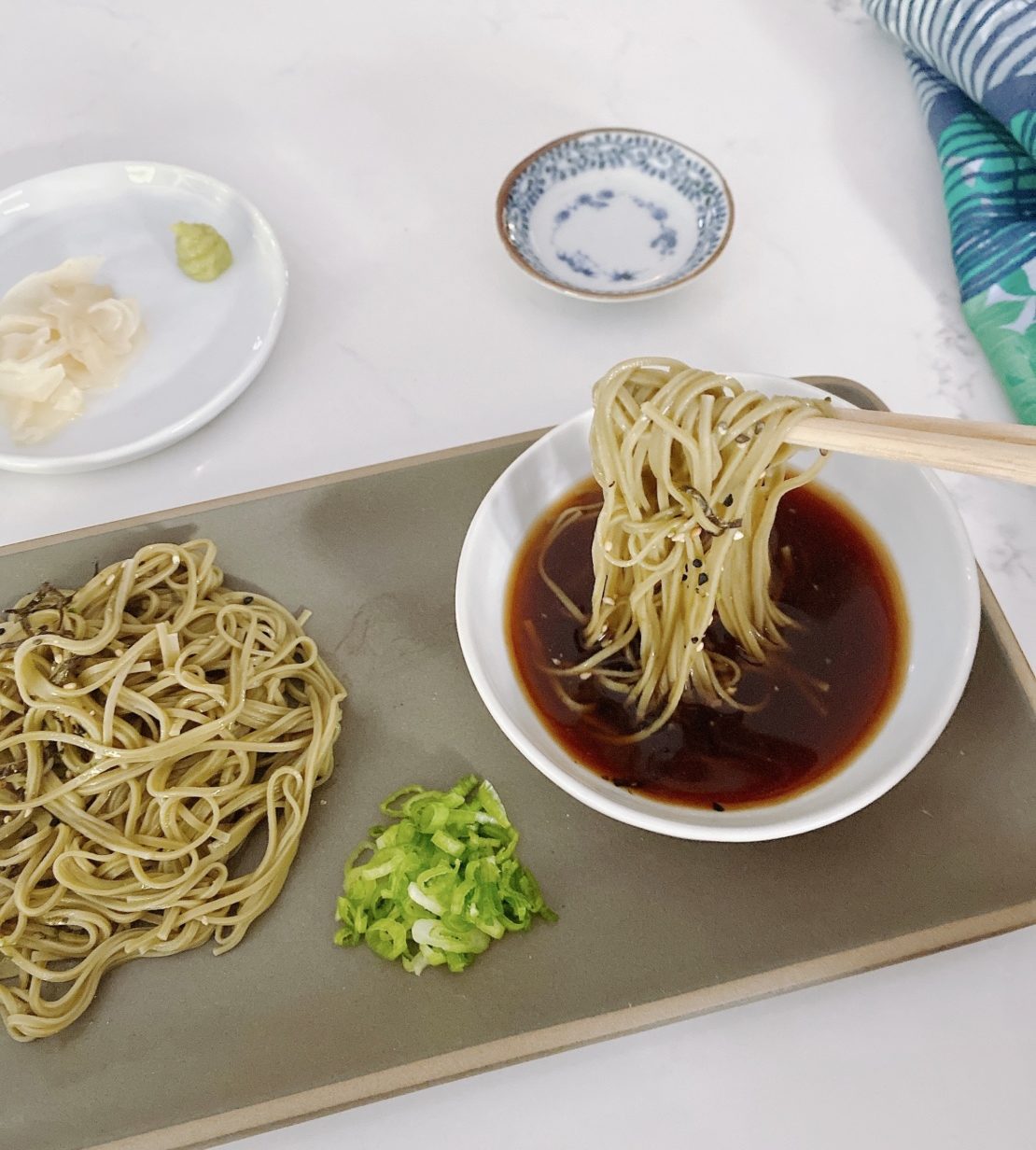





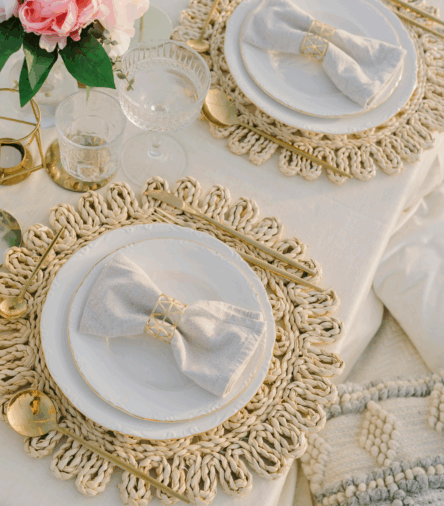







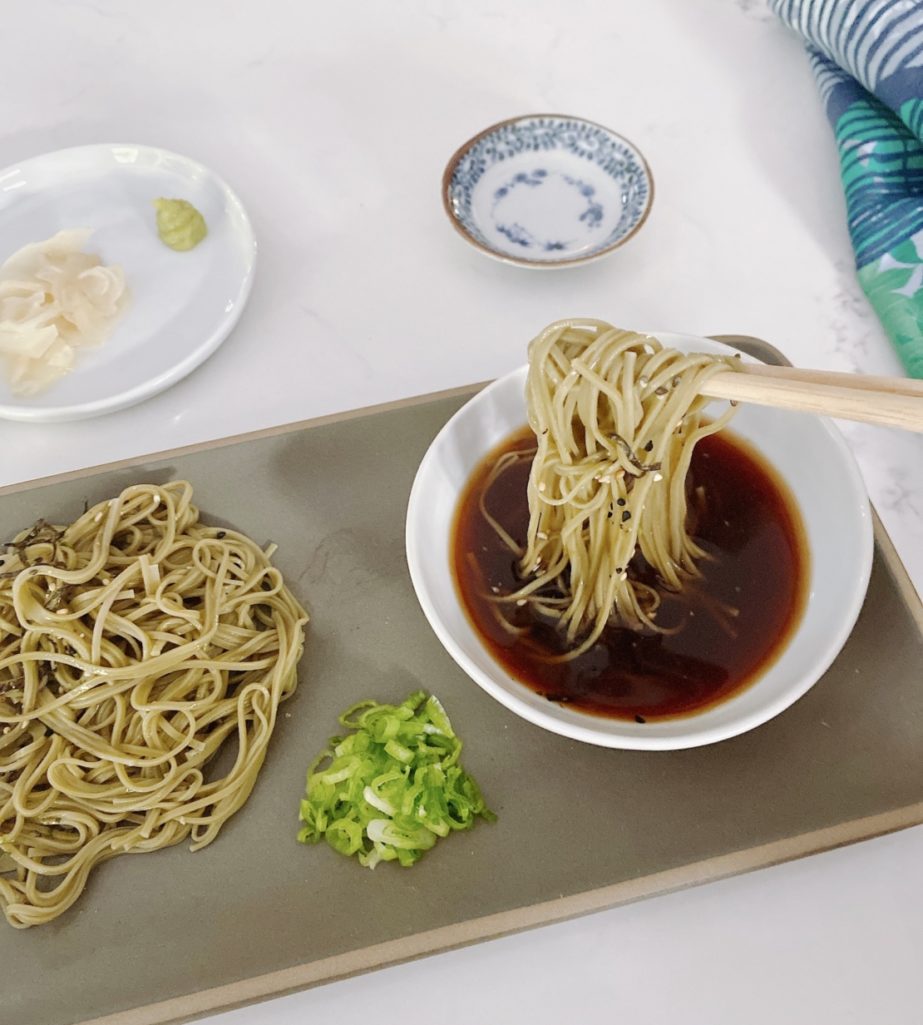





Hi, Kelly! Wow…a recipe AND language lesson today. Love it! Sounds absolutely delicious but must confess I likely won’t venture on this one. Will sub with the ceviche recipe! Question. I have saved every recipe since the first yet seem to be missing the second one, which would be April 11. Would love to know what I missed! Family is visiting and I’ll be making your French omellete for my sweet daughter-in-law to try. Have a blessed day & thanks for our Saturday morning blessings~
Good morning Sylvia, I must admit I took a gamble with today’s recipe. Cold noodles aren’t for everyone, but I do hope some are adventurous enough to try it…I am glad you’re subbing with the ceviche! I love that recipe. The recipe from April 11 was popovers, which would be a perfect accompaniment to the French omelette. Popovers are a definite crowd-pleaser!
Here’s the link: https://www.styleatacertainage.com/kellys-kitchen/how-to-make-perfect-herby-popovers-for-a-virtual-easter-brunch/
Have a wonderful visit with your family! Take care, see you next week, xo Kelly
It’s 103 degrees in Southern Oregon. I will
be making this tomorrow. I am having guests and was trying to think of a hot weather dinner. Here it is! Thank you.
Hi Roberta, wow! 103 degrees is hot, hot, hot! This recipe will be a great dinner for your guests. Enjoy your visit! Thank you for reading, xo Kelly
I love your recipes, but I must admit that this is out of my comfort zone!!!
Hi Nelda, I understand…but you know, that’s the thing about cooking; there’s probably no safer place to break out of your comfort zone and experiment. You never know what you might discover about yourself! Take care and thanks so much for reading the post and taking time to write in, I love to hear from you! xo Kelly
Thanks for posting this recipe – I’ve been interested in trying some Japanese cooking at home and this is motivating me to do it! I especially appreciate the extra information about the seasonings you use. (For what it’s worth, this is the first recipe you’ve posted that I felt really motivated to try – so, to each their own!)
Hello MicMacinMN, Thanks so much for reading! This is an easy entrée into Japanese cooking. I do hope you enjoy this one, and that you feel even more motivated to explore Japanese cooking at home. I have some upcoming Japanese recipes, so stay tuned! Take care, xo Kelly